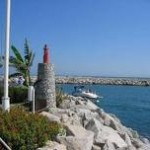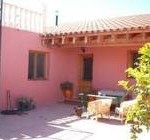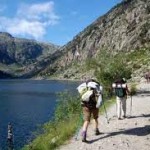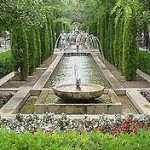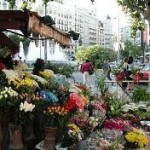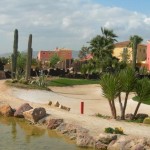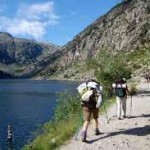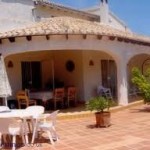Moving and living in Spain for UK Nationals

The process of becoming resident in Spain has been simplified as much as possible, and it now involves less paperwork and time. However it is strongly advisable that new residents complete all the required procedures when registering, opening a bank account, obtaining medical cover and registering cars and driving licences. This is likely to save them an enormous amount of time and trouble when dealing with other aspects of the bureaucracy. Please see the sections on these topics for full information.
Entry and residence requirements
Taking up residence in spain
We advise that all residents obtain a residence card even if it is not obligatory for them, as it is easier to carry than a passport, and simplifies many of the other administration procedures for new residents. However, the information below shows who is legally required to hold a residence card.
Who doesn’t need to obtain a residence card?
UK nationals who are Employees, Self-employed, Students. EU national dependants of an EU or Spanish national or pensioners who have worked in Spain and receive their pension from the Spanish Social Security system no longer need to hold a residence card, and can live in Spain with a valid passport. (Dependants who are non-EU nationals still require a residence card.)
Who must obtain a residence card?
Pensioners who have retired to Spain, people of independent means and non-EU national dependants of an EU or Spanish national, are still required to apply for a residence card. They must apply for one of the following two types of card:
- Temporary residence card: intended stay of more than three months but less than one year.
- Ordinary residence card: intended stay of more than one year with a maximum validity of five years and renewable.
How to apply for a residence card
All those who wish to apply should submit the application form, available from the nearest Oficina de Extranjeros, to the local Provincial Police Station (Comisaría de Policía) or Foreigner’s Office (Oficina de Extranjeros). In Madrid this is at C/General Pardiñas 90, along with three passport size photographs, their passport and a photocopy of the original. The issue of a card is at the discretion of the Spanish authorities.
Further information is available from the Spanish Ministry of the Interior, Tel: 900 150 000. You can also download an application form here
Residents should ensure their passport is valid and shows next-of-kin details on the back page. They should keep their family informed of their address in Spain at all times.
Finance
Using the Services of a ‘Gestor’
Many people – including Spanish nationals – find that using the services of a ‘Gestor’ is the best way to cope with paperwork. The ‘Gestor’ is not a lawyer as such but will produce the final result with minimum stress, usually for a reasonable fee. New residents can do most of the work themselves, but if they have little time, do not speak fluent Spanish, or are confused by the Spanish administration system, the ‘Gestor’ can be useful.
However, ‘Gestores’ do not produce immediate results and residents should always obtain an estimate of costs before engaging their services. It is not uncommon for the ‘Gestor’ to require a down payment to cover the whole fee. Gestorías can be found in the Páginas Amarillas
Bank accounts
- Non-residents: Visitors can open a bank account with a non-resident certificate, which they can get from the local Spanish police office (in Madrid, this is at the Brigada Provincial de Documentacion, c/Los Madrazos 9), by presenting their passport and a copy of the original and completing the application form. Visitors must close these accounts if they become resident.
- Residents: UK nationals resident in Spain can open a bank account with a residence card.
If they do not have a residence card (see Entry and Residence Requirements), UK nationals can open a bank account with their passport and an NIE (Foreigner Identification number).
How to obtain an NIE (Foreigner Identification No.)
Residents can apply for an NIE at the local Police Station (Comisaría de Policía, in Madrid at c/General Pardiñas 90). They need to take their passport and a photocopy of the original, and fill in the application form. They must be prepared to prove they are in Spain legally, and show why they want an NIE.
Alternatively their representative can go to the police station, with the documents to show why they want an NIE, or they can go to the Spanish Consulate in the UK.
Transfer of capital
There is generally no restriction on the import of capital into Spain, but it is advisable to keep records showing that the funds were transferred from abroad and not derived from income earned in Spain. Residents should check with their bank in case any special formalities are necessary.
Transfers of Capital from Spain are governed by Spanish Foreign Exchange Regulations.
Residents in Spain are allowed to take out up to 6,010.12 Euros in cash per trip before having to make a Customs Declaration. They may also bring that amount into Spain without having to declare it. Anything above that should be declared on Form B1, available on entry into Spain.
Taxation
Britiain has a double taxation agreement with Spain, to ensure people do not pay tax on the same income in both countries. However, taxation is a complex issue, and advice should be sought. The Spanish Finance Ministry publishes a book in English called ‘Taxation Regulations for Foreigners’. Further info: www.aeat.es Residents, including retired people, are liable to pay tax on income earned in Spain or from property held in Spain. This includes Property or Real Estate Tax, Wealth and Capital Gains Tax, VAT (IVA), Inheritance Tax, and local municipal charges.
Medical cover and treatment in spain
Taking up residence in spain
Residents in Spain should ensure they are covered by private insurance if Spanish Social Security does not cover them.
Long-term residents
Long-term residents in Spain who are not pensioners, employed persons or officially resident do not qualify for Spanish State health care or NHS treatment in England. UK nationals living in Spain are not entitled to health care in Spain at UK expense. Using an old UK-issued E111 to obtain Spanish health care (which is charged to the NHS) is fraud. They have no right to health care in the UK either, as they are not ordinarily resident there. However, they would receive emergency NHS health care in the UK, in the same way as those persons who are officially registered as resident in Spain may receive emergency healthcare in England while on a visit there.
People in employment
UK nationals working in Spain should be affiliated to the Spanish Social Security system and are covered by Spanish National Health care for which the employer will deduct social security contribution’s from the employee’s pay packet, usually on a monthly basis. Proof of such payments are shown on the pay slip.
A social security number card should be obtained from the local Tesorer?a de Seguridad Social (in Madrid at c/Astros 5 y 7, Tel: 91 503 80 00). This should then be presented at the local medical centre (ambulatorio) along with the correct form, which will entitle the card holder to receive a medical card (tarjeta sanitaria) for ordinary health treatment. A list of medical centres in Madrid is available from the Provinicial Madrid Health Service (Instituto Madrile?o de la Salud), c/ Sagasta 6. Medicines are free if prescribed to treat work-related accidents or illness, otherwise patients pay 40% of the cost.
The self-employed should first obtain an NIE (foreigner identification number) from the police (although we advise obtaining a residence card is easier and more useful) and the Alta Fiscal from the Head Tax Office (Hacienda).
They should take these two documents to the nearest office of the Tesorer?a de Seguridad Social and ask for the Alta de Aut?nomo and the Inscripci?n en la Seguridad Social. They will receive a social security number card, which will entitle them to the tarjeta sanitaria (health card) from their nearest ambulatorio (medical centre), and full medical cover.
The minimum social security contribution for medical cover is 208,18 Euros p/m. (25% less for those under 30, or women over 45).
Working temporarily for a uk employer
Anyone who works in Spain for up to a year is entitled to form E128, if the DSS or the Social Security Agency in Northern Ireland, confirm that they and their employer continue to pay UK national insurance contributions. Those employed on a temporary posting, and any dependants who accompany them, are entitled to treatment for ANY condition during the posting, using an E128. However, if they visit a third EU country, they are only entitled to emergency treatment and will need a UK-issued E111.
If the job unexpectedly lasts longer than 12 months, and the appropriate insurance authorities in Spain agree, employees may remain under the UK scheme for a further period of not more than 12 months.
Students
UK nationals who are studying in Spain as an integral part of a recognised UK course are entitled to form E128 for up to two years. They, and any dependants who accompany them, are then entitled to treatment for ANY condition for the period of their course. They should apply to the National Insurance Contributions Office, Newcastle-upon-Tyne. Tel: 0845 915 4811. If the studies are not a compulsory part of a UK course, students are covered by an E128 for up to 12 months. However, if they know in advance that a course will last longer than a year, they are not entitled to an E128.
A student who is undertaking work in Spain that specifically relates to their studies is entitled to form E128 for up to two years.
UK pensioners settling in spain
UK pensioners (anyone receiving an Old Age Pension or a disability pension) who live in Spain will be entitled to receive free medical treatment under the same conditions as Spanish State Pensioners. The UK pays Spain an annual lump sum per pensioner to cover their health costs.
To establish entitlement they must obtain form E121 from the DSS in the UK. To register a UK-issued form E121 they should go to the local INSS office – Oficina del Instituto Nacional de Seguridad Social (the main office in Madrid is c/Padre Damián 4-6, Tel: 91 568 83 00) with their E121, application for a residence card and their passport. The INSS will issue a ‘tarjeta de afiliación’ and assign the pensioner to an outpatients clinic (ambulatorio) and INSALUD doctor. They must apply for a residence card before they can register their E121. Prescribed medicines are free for pensioners and their dependents.
Those who settle in Spain after early retirement, i.e. before the normal UK pensionable age (60 for women, 65 for men), should consult their local DSS office about their medical cover, possibly under form E106, before travelling.
Ill or deteriorating health is costly, and the Spanish Health services do not cover the wide range of assistance pensioners may be used to in the UK. All EU citizens may expect the same social services as any Spanish citizen under the same conditions, subject to local waiting lists and financial contributions. However, they should bear in mind that such things as meals on wheels, day care centres and nursing homes, which are the responsibility of local, regional and municipal authorities, vary from district to district, may be scarce and welfare staff will not usually speak English.
British citizens who have been in Spain for a long time may be admitted to Spanish State homes, but places are very limited even for Spanish pensioners, and there are no British Government or other officially subsidised places. Copies of the Guía Directorio de Centros para Personas Mayores (Directory of Nursing Homes) are available by writing to: IMSERSO, Departamento de Publicaciones, Avda de la Ilustración s/n, c/v Ginzo de Línea, 28029 Madrid. Tel: 91 363 88 88, Fax: 91 363 88 80, www.seg-social.es. More specific information can be obtained by contacting the Consejería de Trabajo y Asuntos Sociales or its equivalent in the area where the pensioner lives.
Private residential homes, which provide various levels of treatment, from purely residential facilities to full-time nursing care and medical assistance, are expensive – probably no less than ?1000 per month, and staff will usually only speak Spanish. However, there are some British run homes, mainly on the Costa Blanca.
It is advisable to take out private insurance, which will cover medical and dental treatment and even repatriation to the UK.
People of independent means
People of independent means should be entitled to healthcare on production of their residence card. The Tesorería de Seguridad Social should issue a social security number card with which they can obtain a tarjeta sanitaria (health card) from their local ambulatorio (medical centre).
Returning to the UK
Some UK nationals who have been living abroad for a prolonged period choose to go back to live in the UK. It is important that those in need of long-term care make, or have made for them, arrangements for care before returning to the UK. Entitlement to long-term care services also depends on being ordinarily resident in the UK (previous payment of income tax or NI contributions does not count). Local health or social services in the UK will need persuading that someone who may be completely unknown to them has any right to scarce local resources.
Finding work in Spain
There is a high level of unemployment in Spain, and it is often difficult for foreigners to find work. There is often temporary and seasonal work available e.g. in bars, mainly in holiday areas. Work can also usually be found as an English Teacher in one of the many language schools, although the better jobs will go to those with a qualification such as TEFL. A good knowledge of Spanish is normally essential for most long-term jobs.
Job centres in the UK have details of vacancies throughout the EU, supplied to them through the EURES network, which supports free movement of workers within Europe. As well as UK job centres, EURES can be contacted through Job Centres in Spain (Oficinas de Empleo). For more information visit http://europa.eu.int/jobs/eures, or call 0114 259 6190.
Employees may wish to seek legal advice before signing any contract for work. Companies with over fifty employees will normally have a trade union representative who can advise on basic rights and recommend a labour lawyer.
Those looking for work are expected to support themselves while doing so. Unemployment benefit may be transferable to Spain for a limited period. Spanish benefits are not usually payable to non-Spanish nationals. Further information: INEM (National Employment Office). INEM: c/ Espartinas 10. 28001 Madrid. Tel: 91 576 89 02
Self-employment
Those who take up self-employment will need to apply for the necessary documentation. Information is available from PYME (the office for small and medium enterprises). The Ventanilla ?nica Service which helps those wishing to set up business may be helpful. Prospective self-employees can also ask for the Enterprise Creation Support Service (Servicio de Apoyo a la Creaci?n de Empresas) at their nearest Oficina de Empleo (Job Centre).
The British Consulate-General in Madrid and the British Consulates in other cities are not equipped to provide an employment service and cannot reply to enquiries about openings for employment, enter into detailed correspondence or make arrangements in connection with paid or unpaid work. Nor can they intervene in disputes over employment, contracts etc.
PYME : c/ Castelló 117. 28006 Madrid. Tel: 900 190 092. www.ipyme.org
INEM: c/ Espartinas 10. 28001 Madrid. Tel: 91 576 89 02. www.inem.es
Education
Education is obligatory for all children aged 6-16 if the parents are legally resident in Spain, and is free from pre-school to 18 years. However as pre-school is not obligatory, not all children can gain a place. The availability of places depends on the area of Spain and demand for them.
The British Council has details of schools in Spain which offer an English-type education. Most are members of the National Association of British Schools in Spain, which organises periodic inspections by British inspectors, in collaboration with the British Council.
British Council
Paseo General Mart?nez Campos 31
28010 Madrid
Tel.: 91 337 35 66/ 00
Fax: 91 337 35 73
www.britishcouncil.es
Spanish british associations, clubs and expatriate organisations
CHURCHES
BRITISH EMBASSY CHURCH OF ST. GEORGE
c/ Núñez de Balboa 43
28001 Madrid
Tel: 91 576 51 09
Email: stgeorgemadrid@telefonica.net
Sunday service: 8.30am, 10am and 11.15am
COMMUNITY CHURCH OF MADRID
Rev C. Bingman
C/ Viña 3
28014 Madrid
Tel: 91 571 21 36/ 655 03 18 57
Sunday service: 11am
IMMANUEL BAPTIST CHURCH
Dr. D. Dixon
C/ Hernández de Tejada 4
28027 Madrid
Tel: 91 407 43 47
Sunday service: 11am & 7pm
MADRID PRESBYTERIAN MINISTRIES
Rev. J. Campbell
Tel: 91 630 22 58
MPM@MadridPres.org
MOUNTAINVIEW INTERNATIONAL CHURCH
R Richard Wallace
c/ Playa de Sangenjo 26
28230 (Las Rozas) MADRID
Tel: 91 630 51 37/ 667 32 87 68
Email:richard@mountainview-church.com
www.mountainview-church.com
Our Lady of Mercy Catholic Church
The English-speaking Parish of Madrid
Calle Dracena, 23
28016 Madrid
Spain
Tel: 91 350 3449
E-mail: olm@ourladyofmercy.info
web site:http://ourladyofmercy.info/
SYNAGOGUE
C/ Balmés 3
28010 MADRID
Tel: 91 591 31 31
SPORT
HOCKEY
Sociable English speaking field hockey team
playing in the Madrid first division. .
Enquiries to Mark – Tel: 91 541 12 00
FOOTBALL CLUB BRITÁNICO
Long established English speaking team playing in the
Local Spanish league. New players always welcome.
Enquiries to Stewart Gibb – Tel: 91 742 2998
MADRID HASH HOUSE HARRIERS
Cross-country runs & social gatherings.
Tel: 91 518 81 31
THE MADRID CRICKET CLUB
Enquiries to Tom Fryer. Tel: 605 18 73 36
www.crickeintmadrid.com
MADRID ULTIMATE FRISBEE
Enquiries to Nico – Tel: 651 11 33 67 |
SOCIALBRITISH HISPANIC CULTURAL FOUNDATION
Cultural and social events.
Enquiries to Mrs P. Arriete – Tel: 91 345 63 44BRITISH LADIES ASSOCIATION
Monthly meetings and social activities throughout
the year. Enquiries to Shelia Jones –
Tel: 91 803 47 13
CAMBRIDGE CLUB
Ex-university members, social activities.
Enquiries to Sydney Perera –
Tel: 91 431 64 97
INTERNATIONAL NEWCOMERS CLUB
Provides information about community activities and
Services. More information: www.incmadrid.com
MADRID PLAYERS
English speaking amateur Theatre Group
New members welcome. Tel: 91 326 24 39
www.madridplayers.org
MOTHER & TODDLER’S CLUB
Weekly meetings in St. George’s Church Hall
ST. GEORGE’S GUILD
C/ Núñez de Balboa 43
International interdenominational group holding
meetings. Enquiries to Mrs. Milton –
Tel: 91 441 09 13
OTHERS
ALCOHOLICS ANONYMOUS
English speaking
C/ Juan Bravo, 40 bis
MADRID
Tel: 91 309 19 47
International Community Mental Health Association
C/Juan Bravo 7
28008 MADRID
Tel: 91 576 15 38
Provides mental health services to English-speaking community in Madrid.
THE BROADSHEET
English-speaking community publication
Tel: 91 523 74 80
CHARITIES
An unofficial network of welfare groups and small charities can help expatriates facing difficulties. Some are British orientated, but in all cases limited resources restrict the assistance they can provide and none would be able to offer long-term care or financial support.
AGE CONCERN ENGLAND
Astral House
1268 London Road
London
SW16 4ER
Tel: 020 8765 7200/ 0800 00 99 66
BRITISH BENEVOLENT FUND
(Madrid area only)
Contact British Consulate-General, Madrid for details.
FEDERACIÓN AGE CONCERN ESPAÑA
Apartado 7
07180 Santa Ponsa MALLORCA
Tel.: 971 23 15 20
Fax: 971 23 04 90
Email:federation@ageconcern-espana.org
|
Information Source: http://www.spanishhabitat.com
Related Articles:
Turkey
Moving to Turkey
Jordan
Egypt
Greece
Spain
Geography of Europe
Geography of Asia














































